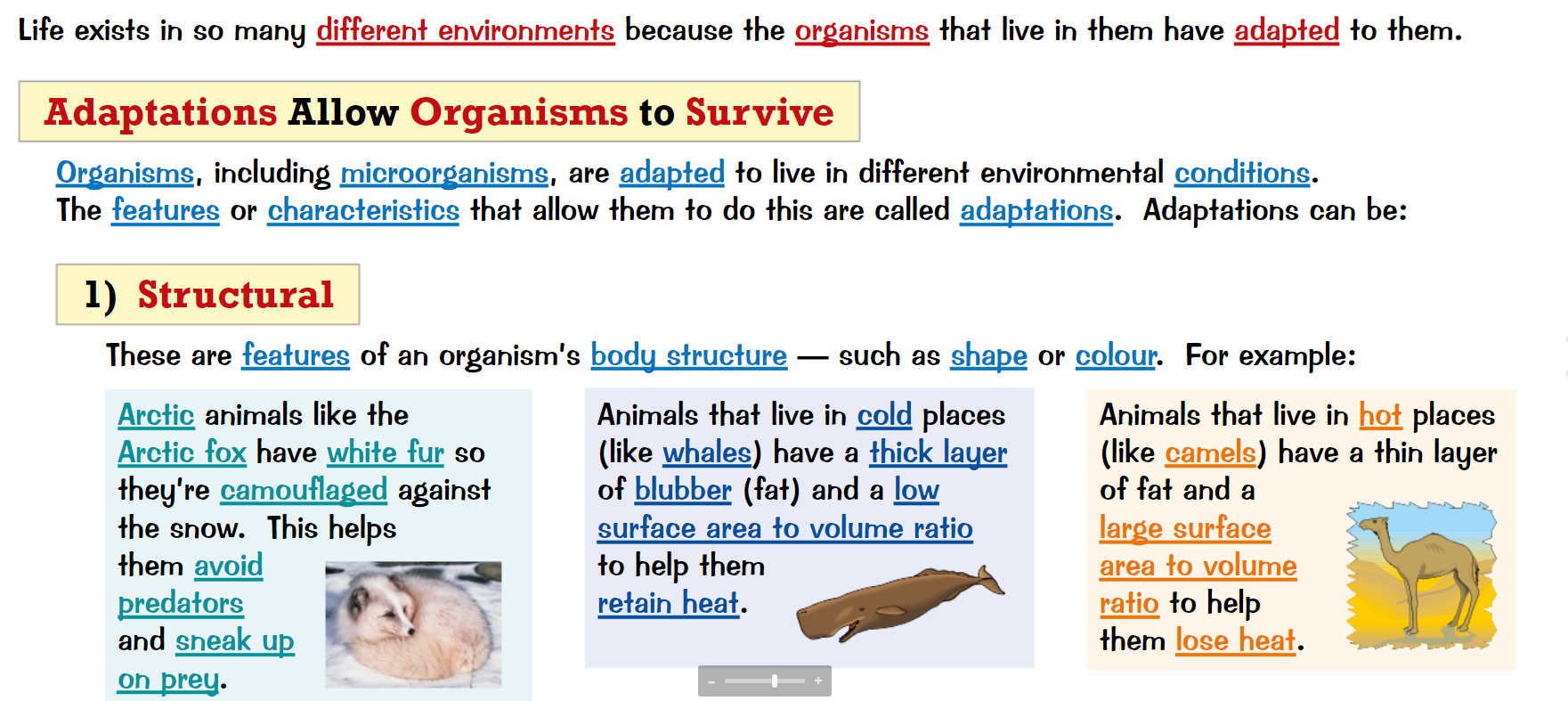What are structural adaptations and how do they help organisms survive?

Understand the Problem
The question discusses how organisms have adaptations that allow them to survive in different environments. It explores structural adaptations specifically, providing examples of Arctic animals and animals in hot climates.
Answer
Structural adaptations are physical traits that help organisms survive, like white fur in Arctic foxes for camouflage.
Structural adaptations are physical features of an organism that help it survive in its environment, like white fur for Arctic foxes to blend with snow, or blubber in whales for heat retention.
Answer for screen readers
Structural adaptations are physical features of an organism that help it survive in its environment, like white fur for Arctic foxes to blend with snow, or blubber in whales for heat retention.
More Information
Examples of structural adaptations include camels having a large surface area to volume ratio for losing heat, and turtles having hard shells for protection.
Tips
Avoid confusing structural adaptations with behavioral adaptations, which are about actions rather than physical features.
Sources
- Structural and Behavioral Adaptations - New Hampshire PBS - nhpbs.org
- Adaptation and Survival - National Geographic Education - education.nationalgeographic.org
- Structural adaptations in animals: 20 examples - Geniebook - geniebook.com
AI-generated content may contain errors. Please verify critical information